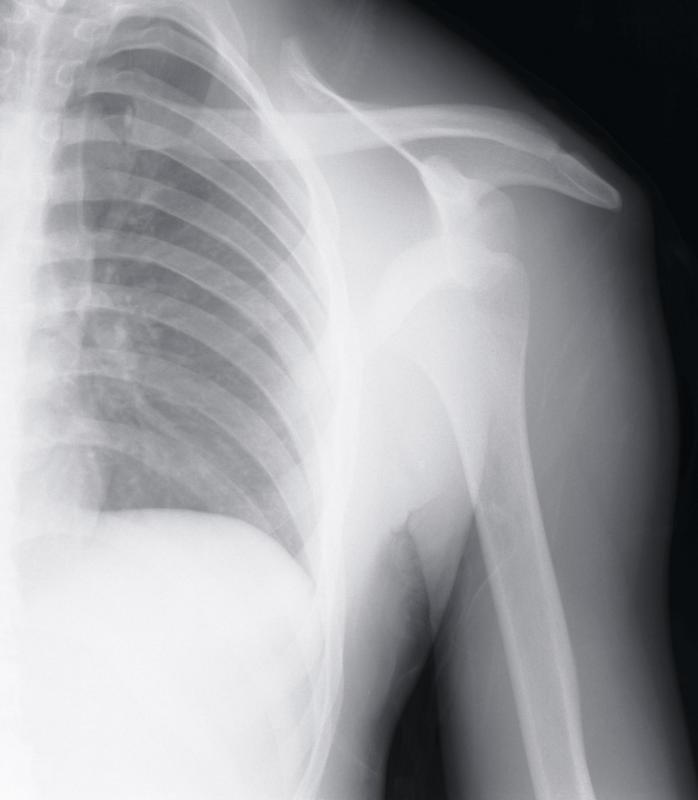At WiseGEEK, we're committed to delivering accurate, trustworthy information. Our expert-authored content is rigorously fact-checked and sourced from credible authorities. Discover how we uphold the highest standards in providing you with reliable knowledge.
What is Shoulder Impingement?
Shoulder impingement syndrome is a medically recognized condition that has many other names. Some of these are swimmer’s arc, thrower’s shoulder, and painful arc. As would be expected, this illness affects the shoulder and may cause mild to significant pain, especially if a person places the hand behind the back or tries to move or elevate it. The logic behind some of the more colorful names for this syndrome, especially when they relate to swimming or throwing is thus understood.
The cause of shoulder impingement syndrome is irritation or slight injury to the rotator cuff. These are muscles and other supportive elements that surround the shoulder joint and help it to move within a certain range. If inflammation occurs in these muscles, this can begin to impact muscle integrity, since the muscles get pushed up against the bones, which reduces blood supply. Ability to move the muscles is affected greatly, and people could have a hard time performing simple tasks. The shoulder and sometimes the upper arm may feel weak and unable to do most things.

There are additional potential causes of shoulder impingement syndrome. People who get bursitis in the shoulder could end up with inflamed rotator cuff muscles. Inflammation of the tendons that are in the rotator cuff in the form of tendinitis may be another condition that results in shoulder impingement.
The symptoms of this condition in early stages typically include pain and the aforementioned muscle weakness or restriction of movement due to pain or weakness. Left untreated or if unaddressed, other complications can occur. Swelling muscles and lack of muscle integrity may result in tears to the rotator cuff or sometimes the biceps muscle.

Usually shoulder impingement syndrome can’t be ignored due to discomfort and changes in ability to move. People normally see a doctor right away and they should. The syndrome is fairly easily diagnosed by its symptoms and sometimes with x-ray to rule out other conditions. The main diagnostic tool can be to inject the injured shoulder with numbing medication. If this causes pain relief, it’s usually a clear symptom.

Shoulder impingement syndrome treatment combines several things. These often include taking at least two months of non-steroidal anti-inflammatory drugs (NSAIDs) or another anti-inflammatory agent if a person is allergic to NSAIDs. Patients may also be taught special shoulder exercises and might see a physical therapist to learn these. Doctors and/or physical therapists might restrict certain activities too. Should symptoms worsen instead of improving, doctors may want to do more scans to make certain that greater injury to the rotator cuff isn’t present, since a torn rotator cuff is a serious injury.

However, most people will not have this complication if they have faithfully taken medications, followed advice for recommended activities and done what exercises are suggested. In most of the cases greater injury is typically because the condition has been ignored. Alternately, if people have exceptional trouble with NSAIDs and other anti-inflammatory drugs, doctors may need to get more creative in reducing inflammation so that people can recover.
AS FEATURED ON:
AS FEATURED ON:
















Discuss this Article
Post your comments